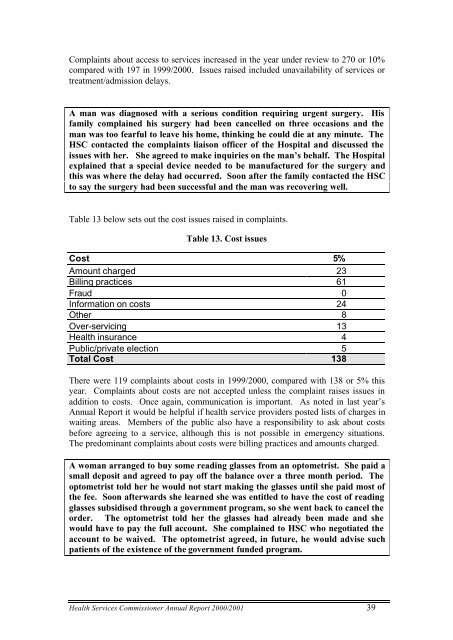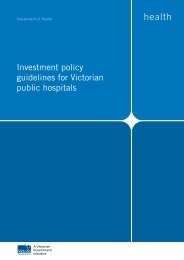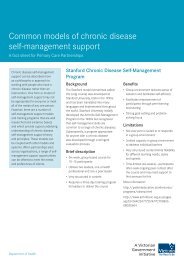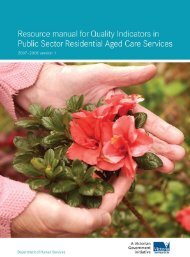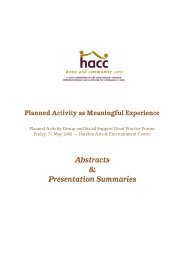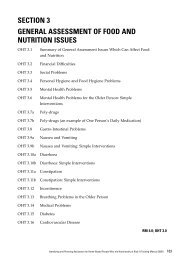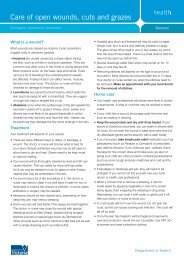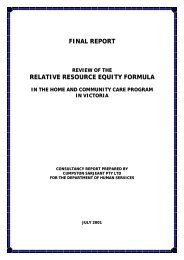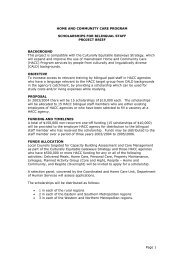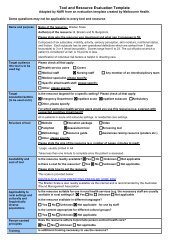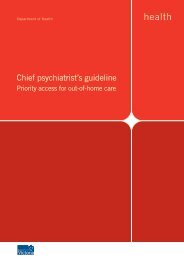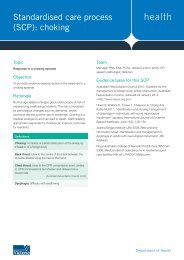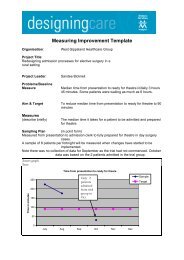Health Services Commissioner Annual Report 2000/2001
Health Services Commissioner Annual Report 2000/2001
Health Services Commissioner Annual Report 2000/2001
You also want an ePaper? Increase the reach of your titles
YUMPU automatically turns print PDFs into web optimized ePapers that Google loves.
Complaints about access to services increased in the year under review to 270 or 10%<br />
compared with 197 in 1999/<strong>2000</strong>. Issues raised included unavailability of services or<br />
treatment/admission delays.<br />
A man was diagnosed with a serious condition requiring urgent surgery. His<br />
family complained his surgery had been cancelled on three occasions and the<br />
man was too fearful to leave his home, thinking he could die at any minute. The<br />
HSC contacted the complaints liaison officer of the Hospital and discussed the<br />
issues with her. She agreed to make inquiries on the man’s behalf. The Hospital<br />
explained that a special device needed to be manufactured for the surgery and<br />
this was where the delay had occurred. Soon after the family contacted the HSC<br />
to say the surgery had been successful and the man was recovering well.<br />
Table 13 below sets out the cost issues raised in complaints.<br />
Table 13. Cost issues<br />
Cost 5%<br />
Amount charged 23<br />
Billing practices 61<br />
Fraud 0<br />
Information on costs 24<br />
Other 8<br />
Over-servicing 13<br />
<strong>Health</strong> insurance 4<br />
Public/private election 5<br />
Total Cost 138<br />
There were 119 complaints about costs in 1999/<strong>2000</strong>, compared with 138 or 5% this<br />
year. Complaints about costs are not accepted unless the complaint raises issues in<br />
addition to costs. Once again, communication is important. As noted in last year’s<br />
<strong>Annual</strong> <strong>Report</strong> it would be helpful if health service providers posted lists of charges in<br />
waiting areas. Members of the public also have a responsibility to ask about costs<br />
before agreeing to a service, although this is not possible in emergency situations.<br />
The predominant complaints about costs were billing practices and amounts charged.<br />
A woman arranged to buy some reading glasses from an optometrist. She paid a<br />
small deposit and agreed to pay off the balance over a three month period. The<br />
optometrist told her he would not start making the glasses until she paid most of<br />
the fee. Soon afterwards she learned she was entitled to have the cost of reading<br />
glasses subsidised through a government program, so she went back to cancel the<br />
order. The optometrist told her the glasses had already been made and she<br />
would have to pay the full account. She complained to HSC who negotiated the<br />
account to be waived. The optometrist agreed, in future, he would advise such<br />
patients of the existence of the government funded program.<br />
<strong>Health</strong> <strong>Services</strong> <strong>Commissioner</strong> <strong>Annual</strong> <strong>Report</strong> <strong>2000</strong>/<strong>2001</strong> 39


